|
ENERGY
!?
(A
cartoon exploration -Chapter Seven)
Preamble:
We human beings face major challenges to our survival as a species, perhaps none as extraordinary as
those created by the ego that resides in each of us. This element of our
psyche plays a pivotal role in determining our perceptions and is
characterised by both an abhorrence of notions of mortality and an
incredible, ingenious capacity for self-deceit. It is well capable of
generating vast, sophisticated rationales of denial of
change/stewardship and can easily make us our own worst enemy. Smile.
Fortunately
there are ways we can transcend the trickery of the ego. We can, for
instance, ensure our use of symbols embraces change/stewardship,
reflecting the wisdom of the great principles of physics. This chapter
explores our use and abuse of one of most potent symbols - the"
power" symbol. Indeed this word is so potent that societies have
for centuries symbolised the manifestation of their omnipotent God as
"The Power".
This last century a new phenomenon has occurred - the power symbol has
become primarily associated with an electrical product. Even an Internet
search for the definition of "power" generates pages framed
with advertisements for this product.
Chapter seven explores the origins and propagation of this behaviour and
asks if it represents a grand denial of change/stewardship that puts us
all at grave risk. Could more careful use of the "power"
symbol open us to far more wonderful and sustaining potential?
Enjoy.
ENERGY
!?
| 1

NEXT |
|
2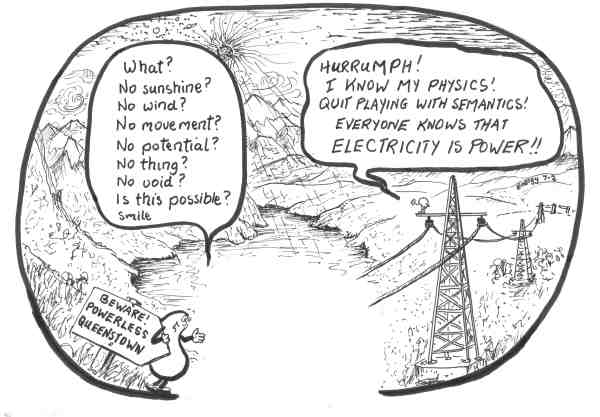
NEXT |
| 3
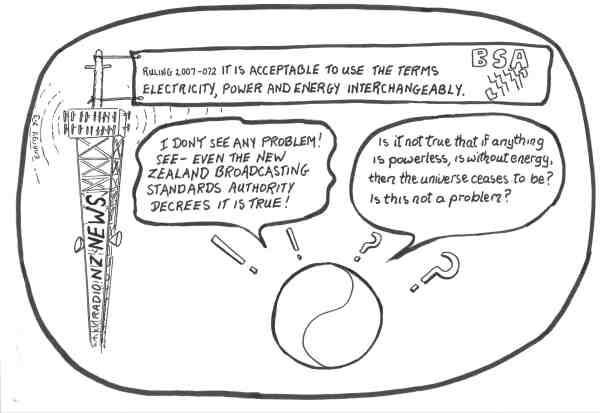
NEXT |
| 4
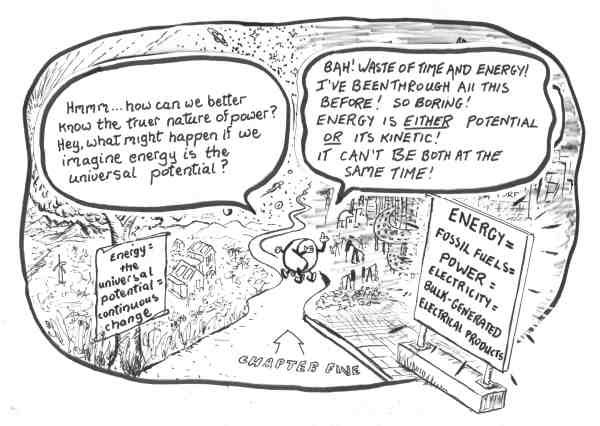
NEXT |
| 5
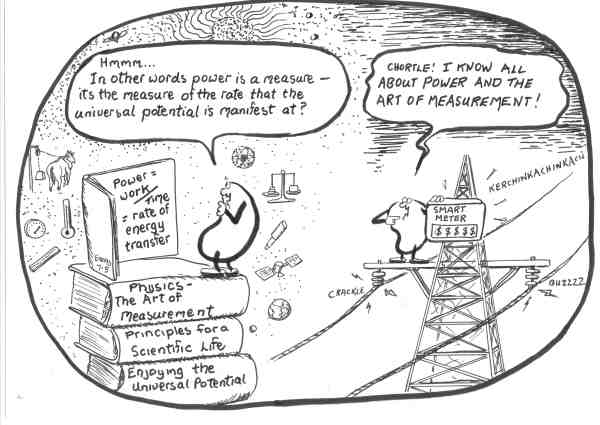
NEXT |
| 6
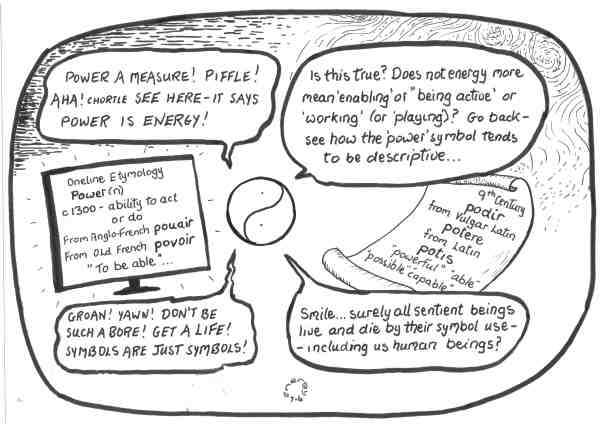
NEXT |
| 7
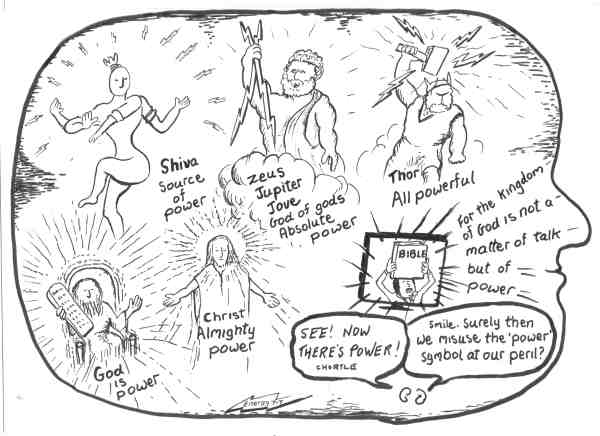
NEXT |
| 8
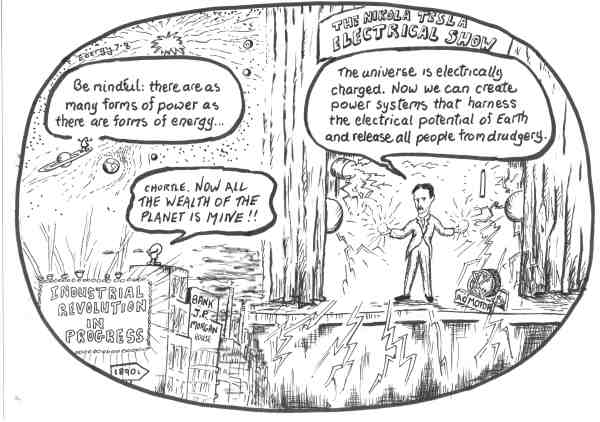
NEXT |
|
9
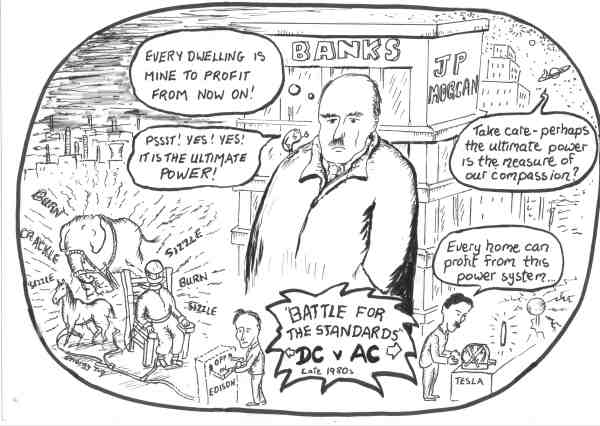
NEXT |
| 10
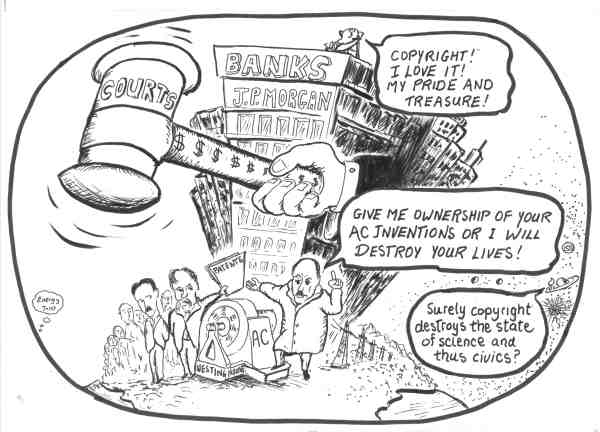
NEXT |
| 11
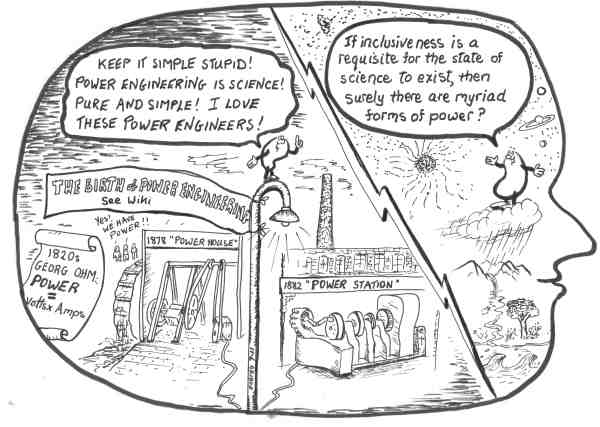
NEXT |
| 12
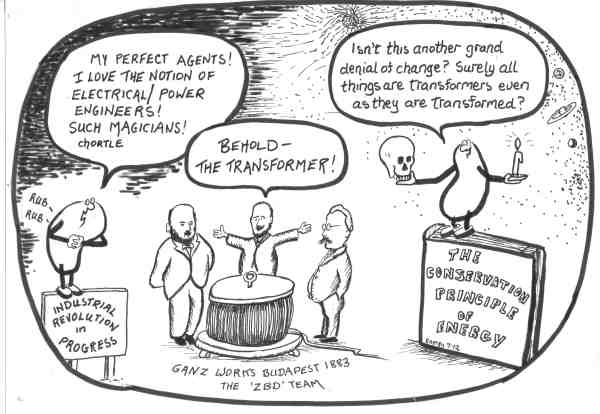
NEXT |
| 13
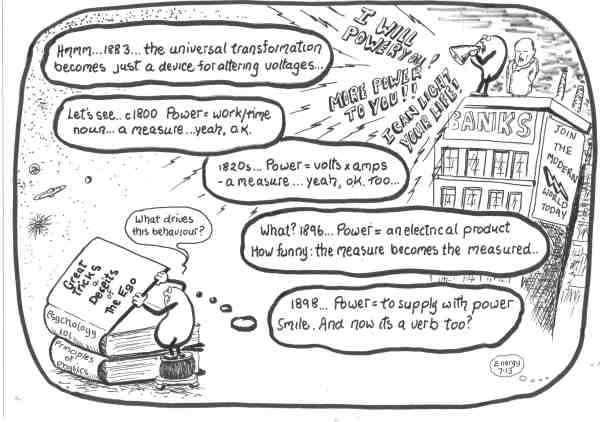
NEXT |
| 14
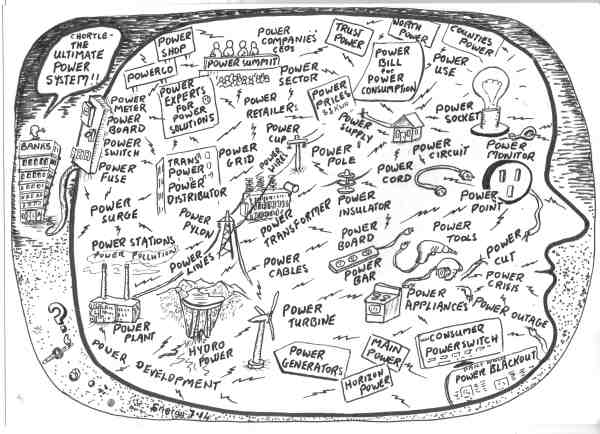
NEXT |
| 15
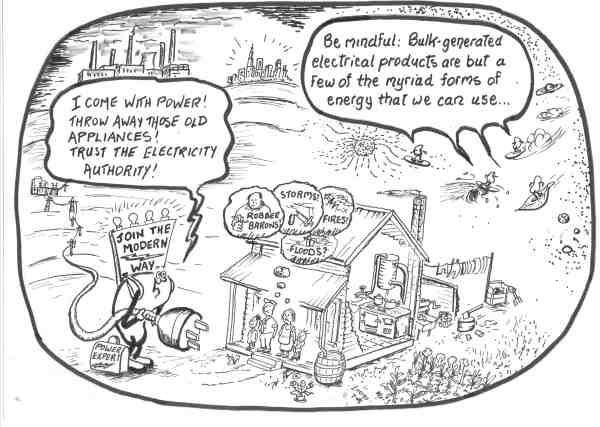
NEXT |
16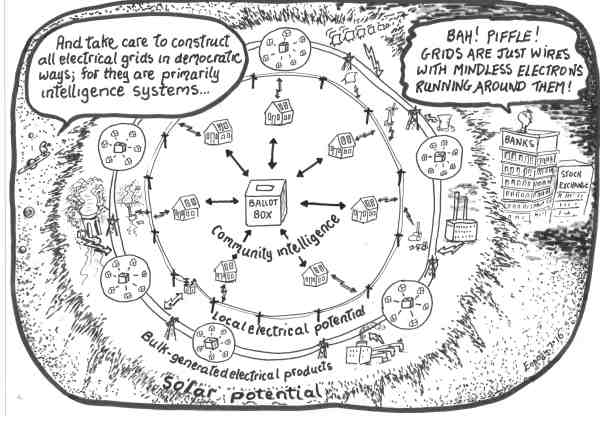
NEXT |
| 17
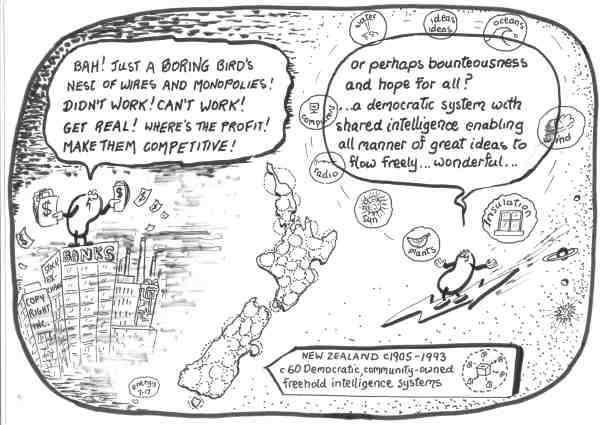
NEXT |
| 18
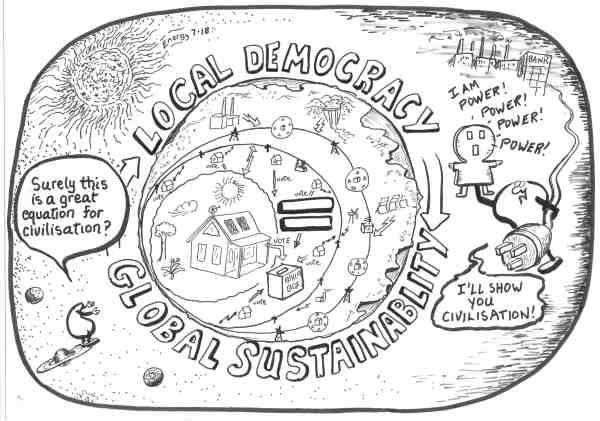
NEXT |
| 19
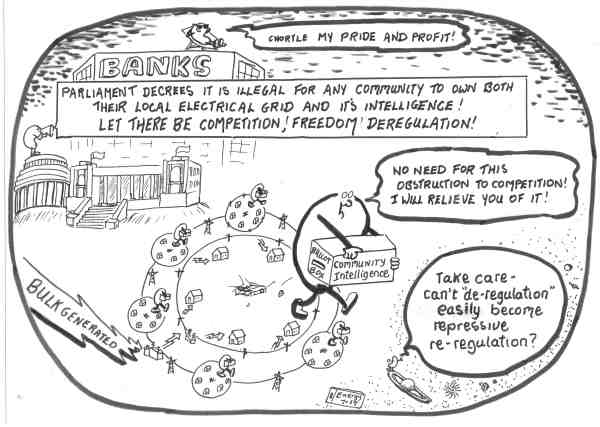
NEXT |
| 20
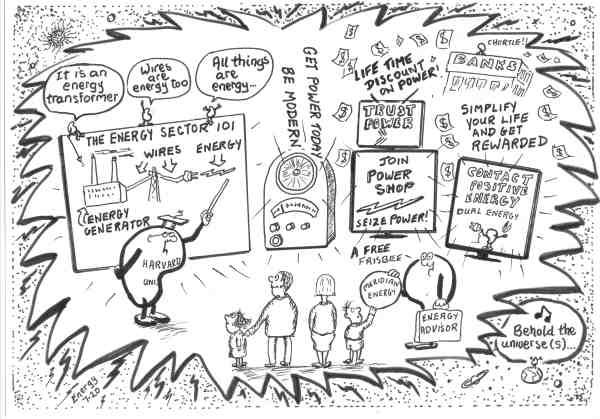
NEXT |
| 21
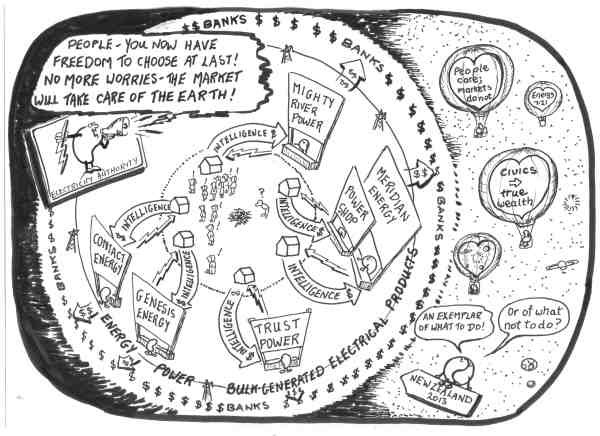
NEXT |
| 22
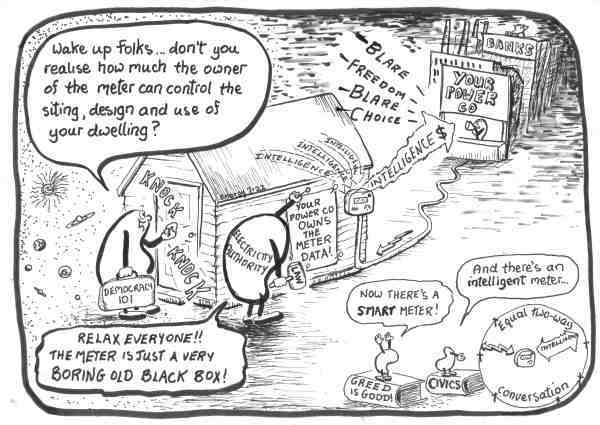
NEXT |
|
23
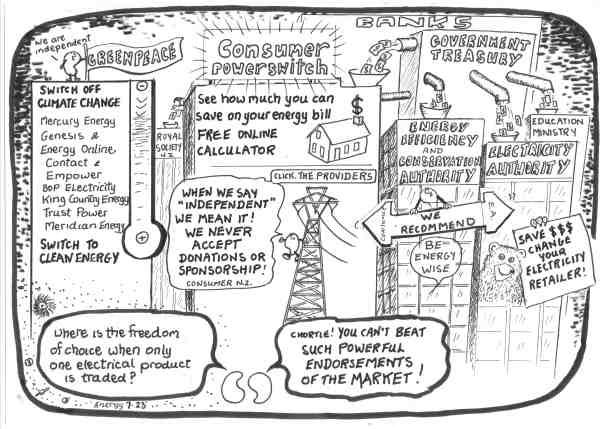
NEXT |
|
24
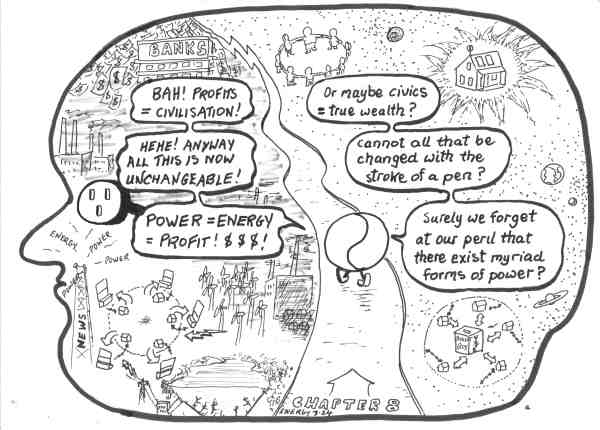
NEXT |
|
25
Chapter eight will
explore the relationship between the ego and the "energy
efficiency" symbol and ask why the symbol is now associated
with deprivation and loss rather than harmony and balance.
Teachers -see below for illustrated hints for learning activities.
General notes about the
"power" symbol:
(1) Perhaps it is helpful to
understand energy is the potential of the universe(s) and it can
be manifest in countless forms. In this context power is the
measure of the rate that the universe is manifest. We can use any
form as measure, whether it be starpower or horsepower or manpower
or mousepower or electronpower or windowpower or willpower...Each
additional measure enables us to better imagine the potential of
all, we are reminded of the multiplicity of forms and we
experience more bounteous opportunities.
When we equate energy with power and both with any form, then we
tend to blind ourselves to all manner of forms.
(2) New Zealand is an
exemplar of the abuse of the "power" symbol. It is
probable the associated unsustainable behaviour is reflected in
countries with similar jurisdictions. It helpful to understand
that legislative reform of the NZ "power sector" (also
known as the "energy sector" and the Electricity
Industry) alters NZ culture in important ways:
(a) 1986 legislation removed
important elements of the accountability of private corporations
to the people.
(b) 1993 legislation effectively made the practice of energy
efficiency illegal.
(c) 1998 legislation effectively made it illegal for NZ
communities to own the intelligence of their local electrical
grids -not one of the previous 60 communities now owns that
intelligence.
(d) 2011 legislation effectively deems the electrical intelligence
of a dwelling's meter is the property of the corporation that owns
the meter.
Hints for Learning
Activities
Ancient wisdom suggests we
can each easily be our own worst enemy. Study Consumer NZ
PowerSwitch or your local, equivalent, consumer.protection agency.
Count the number of ways the websites confuse energy, power
and electricity. See cartoons 17 and 21. Which social model does
the agency promote? How is community intelligence and democracy
best conserved?



https://www.powerswitch.org.nz/powerswitch
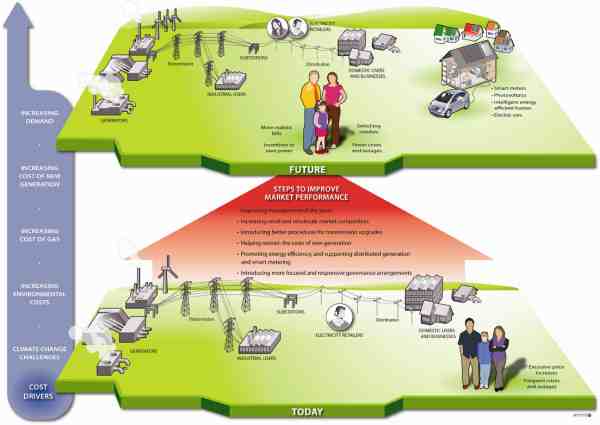
NZ Ministry for Economic Development
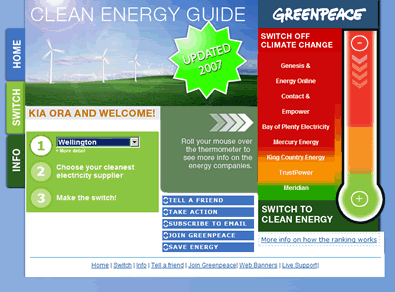

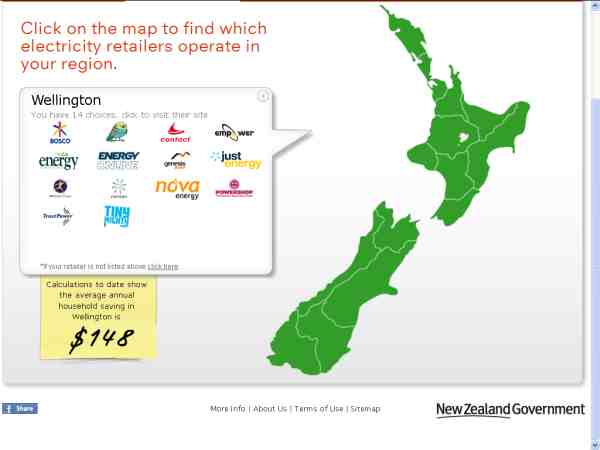
http://whatsmynumber.org.nz/RetailersInYourArea
Observe how advertisements
frame articles - in this case search engine algorithms combine the
advertisement and the article in a seamless way.
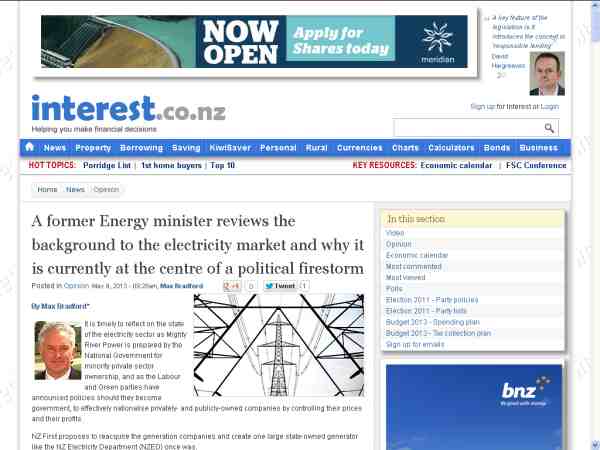
Here are the results
of searches on "electricity market nz" and "power
sector nz". What do these indicate about the state of
democracy and science in New Zealand.
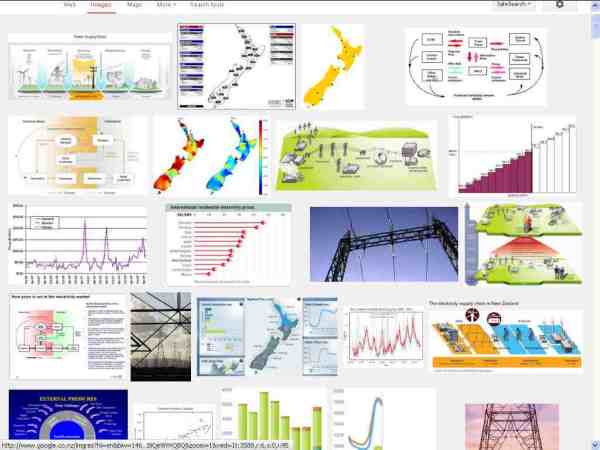
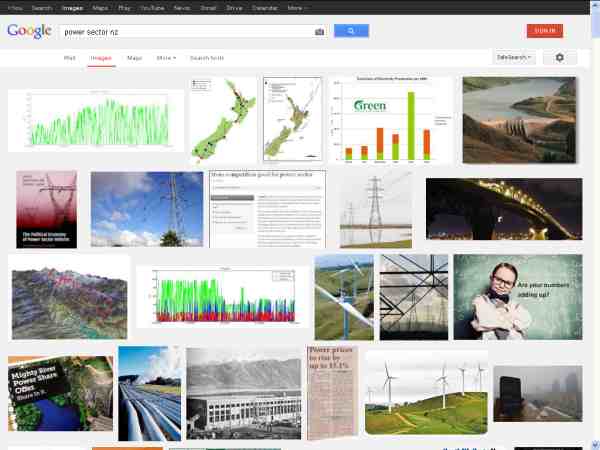
Below is the
transcript of a Radio New Zealand National News item broadcast in
2007. Observe the confusion of energy, power, electricity and
Bulk-generated electrical products. Is this typical of news
broadcasts in your region? How would you edit this script to make
it more sustainable?
Note: the NZ Broadcasting Standards Authority ruling that states
it is acceptable to use these symbols "interchangabily can be
viewed at
McArthur
and Radio New Zealand Ltd - 2007-072
Checkpoint – 23 May 2007
Newsreader: Queenstown could be facing a major energy
crisis as rapid growth in the region puts pressure on
electricity transmission lines. A consultant’s report
has shown power lines, owned and maintained by Transpower,
are insufficient to meet the expected growth over the next
decade. The relevation has [civic?] bosses worried as
Steve Wild reports.
Reporter: Queenstown’s booming economy has broken
national records as the fastest growing district in the
country. But a new report suggests the juggernaut may come
to a grinding halt if the power runs out. A consultant’s
report indicates transmission lines in the district are
almost at capacity and Queenstown Lakes District Mayor
Clive Geddis says the Council has no guarantee the
electricity supply is assured.
Geddis: No we’re not a hundred percent, and the next
piece of work that we need to do is to sit down with both
the line companies and Transpower itself as the network
provider and make sure that their predictions of
population and visitor growth in this district match those
of the Council.
Reporter: The problem may lie in the statistics. The
local Council estimates Queenstown’s population will
triple over the coming two decades. But Mr Geddis says
Statistics New Zealand may have underestimated the
region’s growth, particularly the spikes that occur
during holiday periods, and those are the statistics used
by Transpower to predict future demand. Worries about
Transpower’s line capacity are backed up by Contact
Energy which is also concerned it won’t be able to send
enough electricity out of the district if a major wind
farm near Alexandra gets the go ahead. Contact Energy
spokesman Jonathan Hill.
Hill: The transmission network out of Central Otago is
constrained. There are proposals for, you know, the best
part of a thousand megawatts of new energy in the Central
Otago region but the transmission network is in no state
to accept anywhere near that much new energy; getting it
out of the region will be a very big issue. The network is
already constrained.
Reporter: Queenstown’s Mayor held an urgent meeting
this morning with electricity supply company Delta
Utilities to make sure the district will not run out of
power.
Geddis: I have specifically put that proposition to one
of the lines companies this morning and been assured that
that will not be the case.
Reporter: While unable to fully guarantee supply at
this stage, Transpower’s General Manager of Grid
Investment, Tim George says the company can move swiftly
if projected demand rises.
George: We can never guarantee supply of electricity,
there’s always – you can’t design a perfect power
system. But as far as our normal design for the Whakatipu
and the Central Otago region, we are confident that we are
able to meet the forecast demands.
Reporter: Mr George says if there are differences in
projected growth figures, an urgent re-evaluation of the
transmission grid will take place. He says upgrades could
be in place within a few years.
George: We are able to upgrade substations, for
example, reasonably quickly – takes about two years –
so if we can resolve differences in opinions about the
forecasts we can respond fairly quickly to upgrade the
supply points and make sure that we can meet those
demands.
Reporter: But Mr George does say in order to avert any
possible crisis in the future the Council and Transpower
need to start talking soon.
George: The way that I prefer to put it is that we
understand what’s going on, we understand the current
loads. If the loads are going to be significantly
different in a very short space of time we would like to
know about it with as much notice as possible so that we
will have every opportunity to upgrade the supply system
to meet those demands.
Reporter: Queenstown’s Mayor plans to talk to
Transpower in the next few days. In Queenstown for
Checkpoint, Steve Wild.
|
davemcarthur1@gmail.com
Updates
and Additions
18 July
2013
Energy
?! - Chapter six -The Ego and Greenhouse World
Our
likening of the processes of Earth's atmosphere to the operations of a
greenhouse is a giant conceit that puts humanity at great risk.
21
June 2013
REVIEW:
350.org Do the Maths
Reflections on Bill McKibben's show in Wellington and why Bill is a
genius.
18
May 2013
Energy
?! - Chapter five -The Ego and Global Warming
Our confusion of warming with warming up deprives us of a
wonderful, vital dimension of the thermodynamics of the universe(s).
16
April 2013
Energy
?! - Chapter four -The Ego and Potential Energy
Our estrangement from the universal potential by our division of
kinetic energy from potential energy.
5
March 2013
Energy
?! - Chapter three -The Ego and Forms of Energy
The grand confusion of forms and perspectives of energy.
26
Jan 2013
Energy
?! - Chapter two -The Ego and the Conservation Principle of Energy
The
incredible inconvenience of this great principle.
8
Jan 2013
Energy
?! - Chapter one -Introducing The Ego and Energy
A cartoon exploration of our psychology and the the nature of
energy.
22
Sept 2012
The
Sustainability Principle of Energy
and
Updates
and Additions
18 July 2013
Energy
?! - Chapter six -The Ego and Greenhouse World
Our
likening of the processes of Earth's atmosphere to the operations of a
greenhouse is a giant conceit that puts humanity at great risk.
21
June 2013
REVIEW:
350.org Do the Maths
Reflections on Bill McKibben's show in Wellington and why Bill is a
genius.
18
May 2013
Energy
?! - Chapter five -The Ego and Global Warming
Our confusion of warming with warming up deprives us of a
wonderful, vital dimension of the thermodynamics of the universe(s).
16
April 2013
Energy
?! - Chapter four -The Ego and Potential Energy
Our estrangement from the universal potential by our division of
kinetic energy from potential energy.
5
March 2013
Energy
?! - Chapter three -The Ego and Forms of Energy
The grand confusion of forms and perspectives of energy.
26
Jan 2013
Energy
?! - Chapter two -The Ego and the Conservation Principle of Energy
The
incredible inconvenience of this great principle.
8
Jan 2013
Energy
?! - Chapter one -Introducing The Ego and Energy
A cartoon exploration of our psychology and the the nature of
energy.
22
Sept
2012
The
Sustainability Principle of Energy
and
The Compassionate Curriculum.
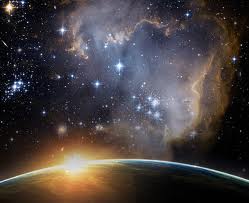  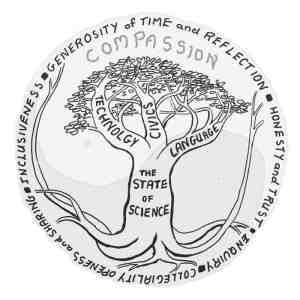   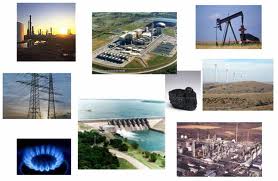 
(An Illustrated Essay - A brief
Historical Overview)
3 August
2012
Towards
a sustainable education system
A graphic
comparison of the New Zealand Curriculum Framework with the
Compassionate Curriculum Framework with brief comment
31
January 2012
A
Practical Guide to Enjoying True Hope
An essay
exploring how the great principles of physics can help identify false
hope and enable the experience of sustaining hope.
5 October 2011
"An
Orwellian Climate"
Letters to
Australasian Chief Science Advisors explaining contemporary confusion in
climate care communication (Prof Peter Gluckman, Prof Ian Chubb, Prof
Tim Flannery, Dr Andrew Glikson )
15 September 2011
The
2011 New Zealand Election Campaign
(A
letter to New Zealand people alerting them to the dangers of the huge
hidden yet in-your-face advertising campaign promoting the sale of our
national assets.)
16 March 2011
Thought
Experiments re the Carbon Trading Ethos
(Originally
designed for the Office of the New Zealand Parliamentary Commissioner
for the Environment.)
26 February
2011
Letter to Radio
NZ
(Contains
reflections on broadcasts and ratings of the sustainability of a wide
range of its programmes.)
29
November 2010
The Joy in the Art of Civics
(Brief reflections on this state of being and the dangers of
Environmental Education)
24
November 2010
Celebrating
Our Climate
(Draft one: A climate education framework founded in the Sustainability
Principle of Energy offering an alternative vision of how we can
communicate the role of humans in Earth's climate processes.)
13
October 2010
Conversation
with NZ Minister of Education (Anne Tolley) re the
sustainability of the national education system. Read the Minister's
letter and reflections on the flaws inherent in the Education Ministry's
response.
4
November 2010
Letter
to the Office of the Parliamentary Commissioner for the Environment
Introduction to the Sustainability Principle of Energy with
discussion of the nature of science.
TOP
|